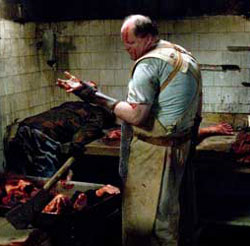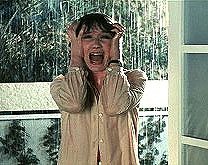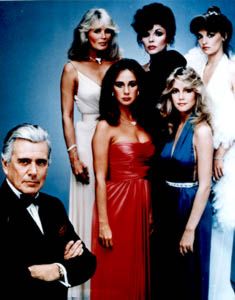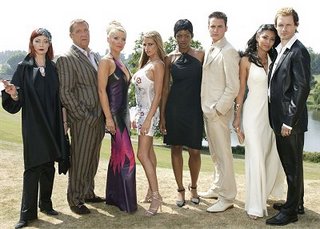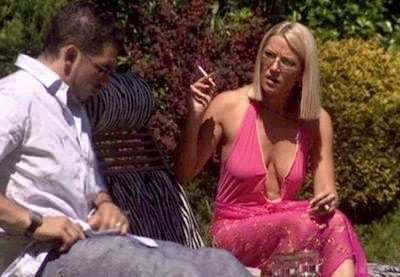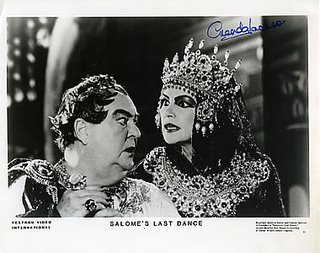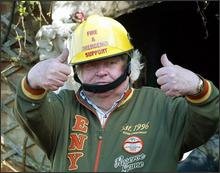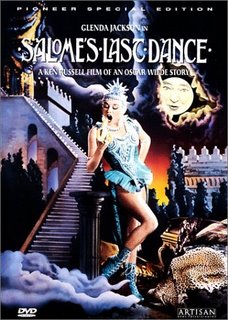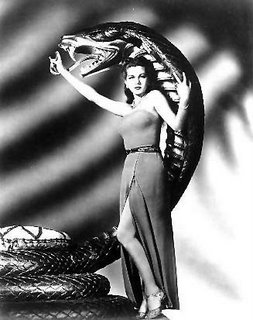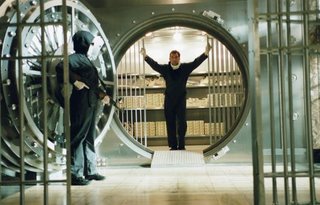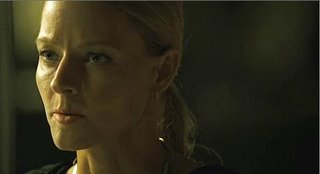It's probably not the first time shit has brought two men closer to one another
 When I bought my ticket to Adam & Steve, I expected very little. At least I would see Parker Posey as a fat goth girl. That, truth be told, is really the only reason I went to see the film (I do belong to the cult of Parker - either you do or you don't, and for those who do, the mere raising of an eyebrow can induce hysterical fits of laughter). Imagine my surprise when I discovered that the film was an exceptionally poignant and side splittingly funny romantic comedy. That moniker alone has been known to infest some viewers with hives, yet every once in a while, a romantic comedy will come along to remind you why they are made in the first place. Adam & Steve is one such movie. And I don't say that lightly. I am extremely harsh on the newest works of Queer cinema, having independently published a condemnation of Q. Alan Brocka's Eating Out and critically ripping various others where I see fit. Most Queer films today are really just sad sexless pornography. Adam & Steve on the other hand, reminds us that there are homosexuals out there who aren't seventeen and do still have sex. What's more, when they're in bed and look at each other lovingly, you actually believe it. That's something you don't get in Latter Days
When I bought my ticket to Adam & Steve, I expected very little. At least I would see Parker Posey as a fat goth girl. That, truth be told, is really the only reason I went to see the film (I do belong to the cult of Parker - either you do or you don't, and for those who do, the mere raising of an eyebrow can induce hysterical fits of laughter). Imagine my surprise when I discovered that the film was an exceptionally poignant and side splittingly funny romantic comedy. That moniker alone has been known to infest some viewers with hives, yet every once in a while, a romantic comedy will come along to remind you why they are made in the first place. Adam & Steve is one such movie. And I don't say that lightly. I am extremely harsh on the newest works of Queer cinema, having independently published a condemnation of Q. Alan Brocka's Eating Out and critically ripping various others where I see fit. Most Queer films today are really just sad sexless pornography. Adam & Steve on the other hand, reminds us that there are homosexuals out there who aren't seventeen and do still have sex. What's more, when they're in bed and look at each other lovingly, you actually believe it. That's something you don't get in Latter Days
First and foremost, you've got Parker Posey in the sort of film that made her an indie deity. And, for the first 15 minutes, her character is a fat goth girl. That's right, Parker Posey in a fat suit! And it's even more hilarious than one might think. But then you start to see the chemistry between the sweetly neurotic Adam (the usually smarmy Craig Chester, who also writes and directs) and slutty control-freak, Steve (Malcolm Gets) is exceptionally sincere and believable. The crazy situations just keep coming and not in the forced way that we have come to expect from Hollywood's current romantic comedies. They are inventive (Adam accidentally stabs his dog while sitting in bed in his underwear eating salami), absurd (every time Adam displays public acts of affection, a beer bottle is thrown at him) and gross (Gets' diarrhoetic expulsion near the opening of the film). And the laughs keep coming - particularly (this should come as no surprise) from Posey whose fantastic lines like "I'm sweating like Whitney Houston in customs," and "Oprah has made it impossible for me to have a relationship with anyone but Oprah."
But it is the sincerity that makes Adam & Steve so memorable. In truth, the final fifteen minutes loses the energy that the entire film has culminated to - throwing in a nonsensical dance sequence and moral heavy handedness. I can take the latter, as Chester has something interesting to say. It is something that goes against the conventions of Queer film and for that I respect him. At one point Chester shouts, "I'm thirty, of course I'm damaged goods. But I'm goods nonetheless." True that.





